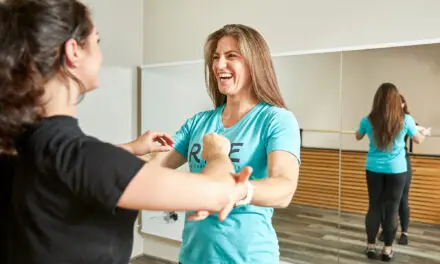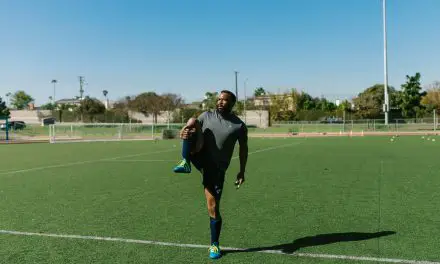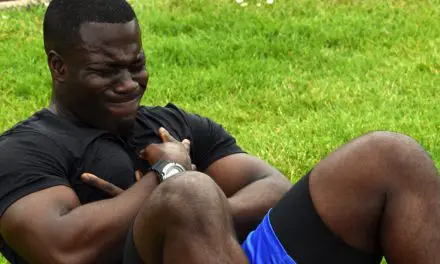Hip-hop, breakdancing, and salsa were three of my favorite types of dance in my twenties and even today. I loved them so much that I would take classes and go out to clubs and dance socials three to four times a week. I also feared that I would not be able to dance as well once I hit age 33 or 35. While I am not certain where this fear came from, I suspect that culture and the media has something to do with it.
The Frameworks Institute recently published a report that compares what aging experts and the general public say about aging and elderly adults. The public’s perspective of aging is something to be feared and fought back rather than embraced and accepted. Aging is a “process of deterioration, dependency, reduced potential, family dispersal and digital incompetence” rather than “self-sufficiency, staying active, participating in leisure activities, and building intimacy with family and friends.”
The American public also holds an “Us vs. Them” mentality that demarcates the elderly as being different from “the rest of us.” Rather than adopting a shared responsibility of helping the elderly with their well-being, the public generally believes that individuals are held responsible for their current state of health and lifestyle.
According to Frameworks Institute, aging experts describe that aging is not synonymous or equivalent to disease, disability, or decline. Like most of the American population in major cities, older adults are also a very heterogeneous group, and there is no single image or representation of what “old age” is. One expert wrote, “If you are an optimist you choose to see the healthy, very attractive 70-year old woman running in tennis shorts at the country club, and if you’re a pessimist you tend to see the financially dependent, frail elderly woman living alone with five chronic illnesses — but both exist.”
For some, getting older can be quite adventurous and being able to do things, achieve personal goals, and go places that the younger self would not have imagined. Stories of aging are almost infinite, and here are five men and women from different walks of life who give their views on aging.

Tom Bohanan, MD
Seattle, Washington.
As an emergency physician, I have seen how vulnerable the elderly are to illness and injury. Something like a wrist fracture, which could be just a nuisance for a child or middle aged adult, might make it impossible for an elderly person to get around their home and provide for themselves. At the same time, many aged adults are very resistant to any change in their living situation that could make their lives safer. Many families think that if an aged person is unable to care for themselves due to an injury or illness that Medicare will pick up the bill. This is not the case.
Many elderly are out there just one fall or illness away from being unable to care for themselves and, aside from their children or friends, have not really thought about who is going to provide the dirty work of caring for them.
When I was in my early twenties, I was fortunate to realize what I wanted in a career and in life. I had graduated from college with a degree in business finance. My first job out was working as a financial analyst. It did not take long for me to realize that sitting at a computer most of the day or meeting with bankers was not for me. I was bored and turned off by the pure profit motive.
I spent the next two years thinking about what I wanted to do and a career in medicine seemed like the most honest and fulfilling thing I could think of. For me, life is about experience and being involved in the struggles and hopes of patients is a great way to make a living. Certainly there are many other careers aside from medicine that do that. As the late extreme athlete Dean Potter said, “Follow passions.”

Liz M. Shiels, USAW Master’s Weightlifter
Albuquerque, New Mexico
As we get older we are faced with many thoughts racing through our heads: “Is this it?” “Am I not going to get better?” “Will I disappear?” “Be forgotten?”
These are all thoughts from ageism—a peculiar but destructive stereotype that exists in this culture. Yes there are biological changes with aging, but those that do it successfully remain active, healthy, break records and are an honored member in their community. How can that be me? It starts with not buying into the stereotypes!
I’m 46, and I do pretty much whatever I want to do. One nice thing is realizing that worrying about what society says about me is false. A lot of what is said about getting older are preying messages to get me to purchase things: cosmetics, lotions, supplements, etc., with the message of staying young.
Young? Like going back and being 12 again? There is nothing wrong with getting older! As a matter of fact, it’s great. Life experiences teach what is important and what is trivial. A lot of it is trivial. What is not trivial is my health. Taking care of my health affords me a certain level of liberties that leave those who buy into ageism in awe.
Ageism says as we get older, we do less. Yes, that’s true — we do less stupid stuff!! The stereotype left out that qualifier.
Do you have to be more careful with how you eat, move, sleep and so forth? Yes, but you get smart about it and those behaviors are sensible, affordable, ultimately not hard to implement and not much different than the stuff we were supposed to be doing all along. Staying confident in one’s own abilities and creating opportunities to express those talents keeps the vitality going strong.

Bill Jones, MS, PT
Columbus, GA
My short answer: Aging is not a disease, nor a disorder. It is a fact of life and living.
Longer answer? Geez…this could go on and on “forever” depending upon how many things jump into my brain…my (soon to be 59 year old) brain.
When we were all younger we couldn’t wait to get older. Once we were there, say our 20’s to 30’s, we enjoyed everything without much care of the “future”. Some folks hit their turning points at 30 to 35 while others it may hit at the big 4-0.
Hell, I had one patient, age 30, that told me he started to fall apart at 25!
Aging is a perception. It hasn’t hit me yet. Background: I did the usual athletic stuff growing up. Track and field (wasn’t that good), basketball (adequate but too short and not the same ability as Spud Webb), baseball (adequate), football (adequate, but there is only so far a 155-pound offensive tackle/guard/defensive end will go). I discovered weight training with football in the tenth grade. I liked it. I liked the feeling of it. Yep way back then. But that was an off and on kinda thing until I joined a gym at 18 years old.
I competed in my first bodybuilding contest a year later, Teenage Mr. Ga. Got third place. And continued to train and compete for 10 years, collecting a few more trophies. Was I living the “clean life”? Hell a lot of this was while in college and a fraternity. It should be understandable beer was involved! During the “season” we dieted (obviously trained) from May to September.
During the off-season we got “fat and happy” — trained but ate as much as we could. After reaching the “peak” of what I could do with bodybuilding. I continued to train off and on, dieted off and on. In my 30’s, I got into martial arts achieving a Black Belt in Tae Kwon Do…and the ability to do splits. Stopped that stuff after they wanted me to teach —without pay. Apparently something that is done in most “karate” businesses. I still did some TKD stuff on my own and weight training…and off and on dieting. Mostly off…until 2008 or 2009.
I saw a friend from college as a patient and he said was way out of shape. Me? Heck I had been perpetually starting over for three years. I told him we could workout but not just weight training we would throw in some conditioning as well. Been doing that three days a week since. We’ve had others join us. So we have a gym that is open three hours a week and has been going since 2011. It’s only for us and who we invite. The youngest that trained with us was 18 the oldest 61. Everyone does the same thing. Some things have to be modified.
Most of the younger folks drop out…not because it’s too easy but because it’s too hard. If a workout is too easy we don’t do it again or that portion of the workout again. It’s just the way we want it. We’re not answering to some internet guru that wants to argue about form, programming, and a bunch of other garbage. Once I told my old bodybuilding workout partner that I didn’t have any more fitness goals. He quickly told me: “Yes, you do. Number One: Sweat. Number Two: Vomit!” I agreed! Except Number Two would be: Almost Vomit. Every workout is different.
This gets to exercise my brain (creativity). There are still movements we’ve never done before that will pop up in my head. I like to test myself…yep at my age. In 2011 I did a marathon…with five runs under my belt. I finished. That was the goal.
Your Fountain of Youth.
Now getting back to the “aging” thing. If you feel old…you are. If you feel young…you are. If someone is 30, 40, 50, or 60 can they feel like they can “reverse” aging? Sure. They can “feel” like they can. And they can by regular exercise and an eating plan they can stick to. They will feel “younger”. You don’t need specific supplements. You may need some blood work to check out the insides. You may need some medical help at some time. That’s about it.
Aging is nothing to be afraid of. This isn’t rocket science or brain surgery.
Me…I’ll be 59 in a couple of weeks. Can I do anything I could at age 30? Yes, I can. I pretty much feel like I did at around 30…or at least that is my perception.

I. Zabala, MBA
Los Angeles, CA
How the years pass you by is up to you!
In my late teens I considered anyone over 35 as being old. By the time I reached 35, I had changed “old” to those over 55. And now at 55 the word “old” is non-existent to me.
I now preach with high conviction the old adage of “you are only as old as you feel!” There are fountains of youth everywhere that we can tap into that will help us stay looking younger than our years.
No, I’m not talking about magic potions or cosmetic surgery, although the latter is an option. What I’m talking about is healthy and fun living choices. Eating right, exercising, constantly learning new things and, of course, “cougarism” are my favorite fountains. Now that labels include ingredients and organically grown food is available, there is no reason why we should not eat right. And with low-cost gyms, an array of hiking trails, and local Zumba classes, we have no excuse for inactivity.
To keep our brain young we have choices from low-challenging to high-challenging classes such as pottery or leaning a new language. And why not date younger men? So rather than worrying about the years passing by and old age creeping in, just use every minute of those years to stay healthy and have fun! Wouldn’t you rather say your real age and hear, “Wow! You look 15 years younger that!” rather than hiding your age and hearing, “Wow! You’ve lived a hard life!”
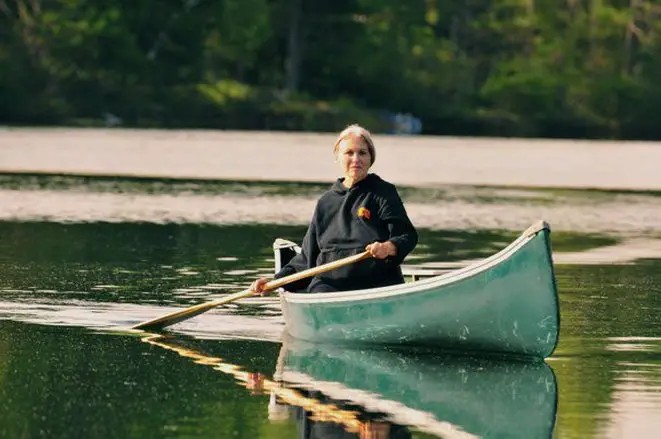
Lee Kalpin, RMT
Holland Landing, Ontario, Canada.
Several decades ago, my mother told me that she was shocked when she looked in a mirror and saw an old lady looking back at her.
Now that old lady is looking at me, out of my mirror. She has white in her hair, lines on her face, and her body is not the trim, fit body I was used to seeing. But the eyes are the same – that is still ME looking out of those green eyes and the person behind the eyes is the same person.
Others may see an old lady, but I don’t identify with that. In my mind and my heart, I am still the same person, and that’s what younger people don’t realize—they may see a “little old lady” but that’s not who I am.
Some aspects of my life have changed, as they do for all of us. I can’t physically do all the things I used to do, or at least, I can’t do them as quickly or as well.
I can still climb six flights of stairs up to my theatre seats in the top balcony but I have to stop and catch my breath along the way. I still enjoy yoga classes every week but can no longer do headstands or the full lotus.
So, what is aging about for me? Life represents continual change, from the time we are children to the time we die. Change is normal, and not something to be afraid of.
The media advertises products to “reverse the aging process” in various ways, and that is a fear-based strategy. They try to make people afraid of the changes they will experience as they age, so that they can sell products or procedures.
I believe it’s important to enjoy and celebrate our lives, every step of the way.
By the way, I am 74 and still work full-time as a massage therapist and teacher.
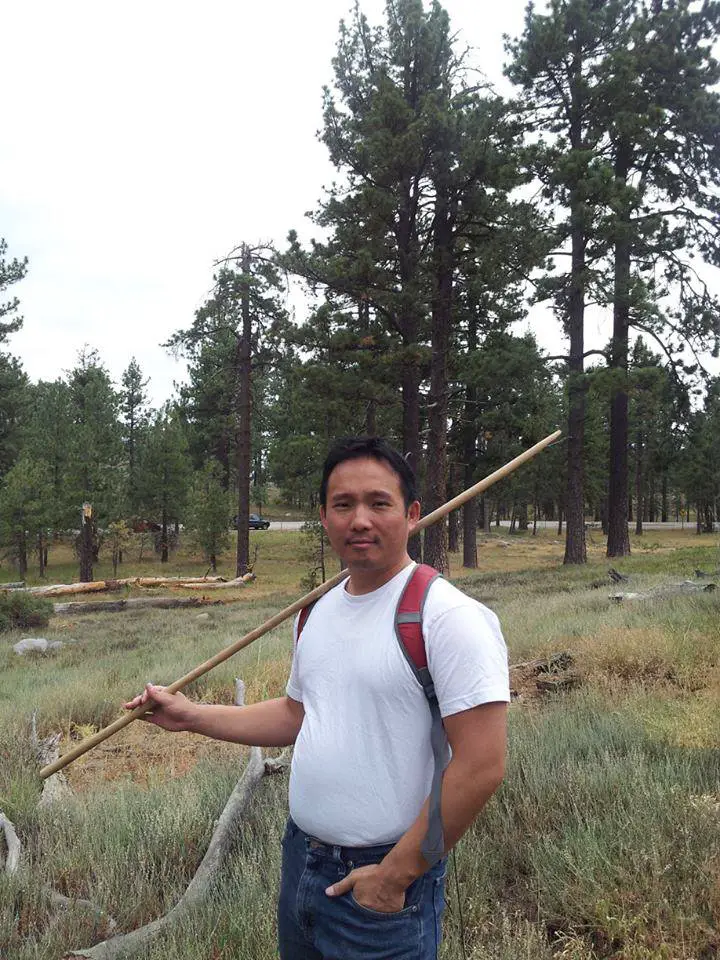
Closing thoughts
I do not see myself stop doing what I loved to do in my twenties, but I am extra careful about doing them. I can still see myself leaping, spinning, and doing the six-step at parties in my 40s and maybe 50s. Aging is not something that needs to be feared, shunned, or “reversed.” There is no need to feel vulnerable, insecure, or helpless about who you are. The next you see an ad on TV, a Facebook invitation, or an email that promotes aging as something that needs to be fought against or “reversed,” ignore it.
A native of San Diego for nearly 40 years, Nick Ng is an editor of Massage & Fitness Magazine, an online publication for manual therapists and the public who want to explore the science behind touch, pain, and exercise, and how to apply that in their hands-on practice or daily lives.
An alumni from San Diego State University with a B.A. in Graphic Communications, Nick also completed his massage therapy training at International Professional School of Bodywork in San Diego in 2014.
When he is not writing or reading, you would likely find him weightlifting at the gym, salsa dancing, or exploring new areas to walk and eat around Southern California.


